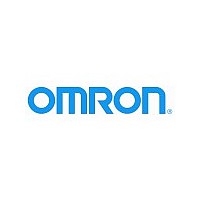CV500-ZS3AT1-EV2 Omron, CV500-ZS3AT1-EV2 Datasheet - Page 17

CV500-ZS3AT1-EV2
Manufacturer Part Number
CV500-ZS3AT1-EV2
Description
C.V SOFTWARE 3.5in DISK
Manufacturer
Omron
Datasheet
1.CV500-COV01.pdf
(182 pages)
Specifications of CV500-ZS3AT1-EV2
Lead Free Status / Rohs Status
Lead free / RoHS Compliant
- Current page: 17 of 182
- Download datasheet (2Mb)
PC Operation
1-3
Block Diagram of PC
Execution Cycle
Cycle Time
4
PC Operation
Signals
from
switches,
sensors,
etc.
1, 2, 3...
PCs operate by monitoring input signals and providing output signals. When
changes are detected in input signals, the PC reacts through the user-pro-
grammed internal logic to produce output signals. The PC continually executes
the program in its memory to achieve this control.
A program for your applications must be designed and stored in the PC. This
program is then executed as part of the cycle of internal operations of the PC.
When a PC operates, i.e., when it executes its program to control an external
system, a series of operations are performed inside the PC. These internal oper-
ations can be broadly classified into the following four categories. Refer to the
CV-series PCs Operation Manual: Ladder Diagrams for details.
The total time required for a PC to perform all these internal operations is called
the cycle time.
Timing is one of the most important factors in designing a Control System. For
accurate operations, it is necessary to have answers to such questions as these:
1. Common (or overseeing) processes, such as watchdog timer operation and
2. Data input and output.
3. Program execution.
4. Peripheral device servicing.
How long does it take for the PC to execute all the instructions in its memory?
How long does it take for the PC to produce a control output in response to a
given input signal?
Input
testing the program memory.
Power Supply
Programming
Memory
CPU
Device
Output
Signals to
Solenoids,
motors,
etc.
Section 1-3
Related parts for CV500-ZS3AT1-EV2
Image
Part Number
Description
Manufacturer
Datasheet
Request
R

Part Number:
Description:
G6S-2GLow Signal Relay
Manufacturer:
Omron Corporation
Datasheet:

Part Number:
Description:
Compact, Low-cost, SSR Switching 5 to 20 A
Manufacturer:
Omron Corporation
Datasheet:

Part Number:
Description:
Manufacturer:
Omron Corporation
Datasheet:

Part Number:
Description:
Manufacturer:
Omron Corporation
Datasheet:

Part Number:
Description:
Manufacturer:
Omron Corporation
Datasheet:

Part Number:
Description:
Manufacturer:
Omron Corporation
Datasheet:

Part Number:
Description:
Manufacturer:
Omron Corporation
Datasheet:

Part Number:
Description:
Manufacturer:
Omron Corporation
Datasheet:










